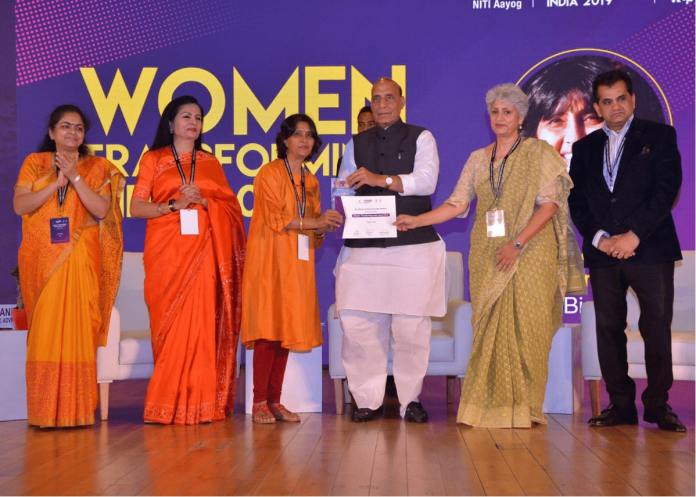Jugnu Jain, a molecular geneticist, cell biologist, inventor with three patents to her name had come back home to India after 26 years. The more she became a global citizen, the more her identity as an Indian evolved. “The Nehru Trust scholarship for a Ph.D. at Cambridge was a career-defining award,” she said. “It allowed me to do genetics, a field not advanced in India at that time, but it made me more of an ‘Indian’. I became more conscious that I was representing my country.” The appeal of biobanking also lay there. Currently, apart from the US and western countries, China has strong biobanks and genomics. “I thought, if China can, why can’t we?”

Receiving the NITI Aayog Women Transforming India award from Union minister Rajnath Singh
Jugnu Jain has been changing the landscape of biobanking in India. Sapien Biosciences has emerged as India’s first central biobank predominantly upcycling medical waste for R&D of new diagnostics, drugs, and reagents. When the 50-something Jain received the ‘Women Transforming India’ award from the Government of India’s premier think-tank, NITIAayog, in 2020, it felt like a homecoming.
Click here to read more.
